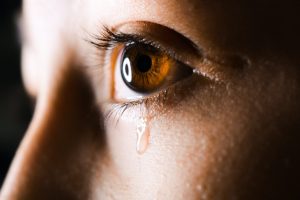If you’re working in the area of mental health, including addiction treatment – or if you’re in recovery from addiction yourself – you’ve most heard of the DSM-V (also referred to as the DSM-5).
The Diagnostic and Statistical Manual of Mental Disorders was first published in 1952, has been helping physicians and mental health care professionals in diagnosis and decision-making worldwide.
Apart from being an important tool doctors use to diagnose mental disorders like addictions, it is also a widely used resource.
Despite some criticism against it, and some of the challenges of using it in everyday practice, the DSM is a valuable tool for use by healthcare professionals.
What is the DSM-V?

The Diagnostic and Statistical Manual of Mental Disorders (DSM) is a handbook used by healthcare professionals to guide the diagnosis of mental disorders.
The latest edition of the DSM-5 (or DSM-V) was published in 2013 by the American Psychiatric Association.
The DSM is continuously under review and revised by the Association as research and understanding of mental health increases and improves.
Further editions are expected as and when updates need to be made.
What makes the DSM so useful?
It is a comprehensive compilation of descriptions, symptoms, and other criteria for diagnosing mental disorders.
It enables a common language for doctors to use while communicating with each other, and to clients and their families, helping ensure consistent and reliable diagnoses as well as data for research.
Moreover, it helps in determining and monitoring the effectiveness of treatment.
Addiction in the latest DSM
The DSM is commonly used in diagnosing and treating addiction and other mental health issues.

Notably, the DSM-5 defines addictions to alcohol and drugs as a psychiatric disorder.
By including addiction in the DSM as an aspect of mental health, the psychiatric profession has reinforced that addiction is a brain disease.
This is validated by what we know from research and rehabilitation.
The significant change regarding addiction in the DSM-5 edition is that it combines the categories of substance dependence (addiction with a pattern of compulsive use or loss of control) and substance abuse disorders (using substances that cause problems but does not have a pattern of compulsive use) under one broad category called “substance-related disorders”.
Substance-Related Disorders and the DSM
Specifically, the DSM-5 specifies substance-related disorders resulting from the use of 10 classes of drugs:

- Alcohol
- Caffeine
- Cannabis
- Hallucinogens
- Inhalants
- Opioids
- Sedatives
- Hypnotics
- Anxiolytics
- Stimulants
Moreover, the DSM-5 lists two distinct groups of substance-related disorders: substance use disorders and substance-induced disorders.
Both groups have a significant role in the diagnosis, treatment, and research on drug and alcohol use and addiction.
Challenges to Using the DSM
The DSM is not the only reference manual available for diagnosing addiction or any other mental health condition.
The World Health Organization publishes the International Classification of Disease, which is used along with DSM as a compatible tool for diagnosis and monitoring.

Some, like the National Institutes of Health, have criticised the DSM for focusing too much on superficial symptoms and a lack of measurable, scientific signs of mental health disorders.
Others, like Alcoholics Anonymous, prefer to use models outside such clinical classification systems.
However, at AddictionsUK, we recognise that the DSM contains the most up-to-date criteria currently used for diagnosing mental disorders like addiction and that despite its challenges and some criticisms, it is routinely and widely used.
Some of our therapists are themselves in recovery, and their intuitive perception based on personal experience, combined with clinical analysis makes for accurate diagnosis and monitoring protocols.
Moreover, self-help groups such as AA (Alcoholics Anonymous) while being unscientific, have proven their efficacy over time in helping addicts and alcoholics recover.
Recognising Symptoms of Alcohol or Drug Addiction
Even with tools that are like the DSM, it can be difficult on your own to recognise and admit that you have a problem with addiction to drugs or alcohol.

Denial is a cunning phenomenon and will convince the person that he or she doesn’t have a problem, despite any clinical or personal assessment or intervention.
Addiction is a serious disorder that destroys families and careers. And kills the addict.
If you or your loved one is in any way impacted by substance use, it is better to talk to someone likely to help.
Addictions UK can assist in several ways from providing a home-based medical detox to offering continued therapy and treatment.
Our services are affordable, confidential, and effective. Treatment at home where appropriate is convenient and less expensive than being admitted to a residential facility.
We can also provide a range of services to family and friends. We’ve helped hundreds of individuals reclaim their lives from addiction!
For a free and confidential consultation
call our freephone 0800 140 4044



